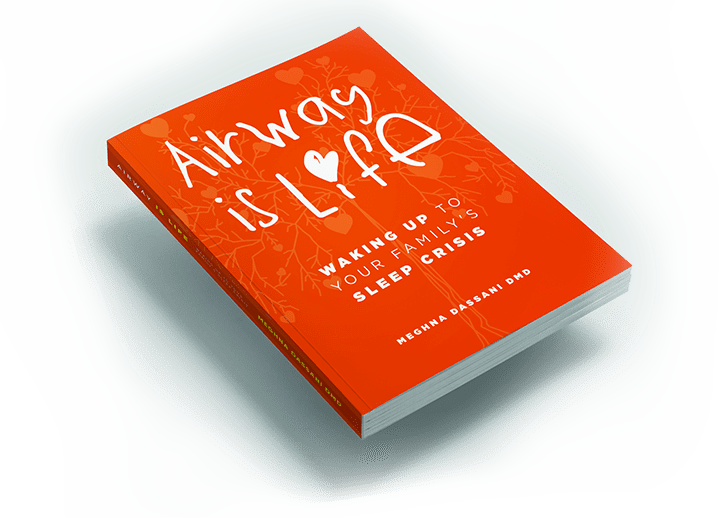Could a nasal spray be the future of sleep apnea treatments?
Sleep apnea is a common sleep disorder that affects millions of people worldwide. It’s characterized by interrupted breathing during sleep, which leads to restless nights and potentially severe health consequences, including heart disease.
Current sleep apnea treatments range from lifestyle changes to continuous positive airway pressure (CPAP) machines. However, researchers are exploring other solutions to provide more convenient and effective options for managing the condition.
One such avenue is a nasal spray drug as a potential treatment option. Could an effective sleep apnea treatment be just a spray away?
Understanding what sleep apnea is
Before exploring the potential of this nasal spray drug, let’s talk more in-depth about what sleep apnea is.
There are two main types of sleep apnea:
- Obstructive sleep apnea (OSA)
- Central sleep apnea (CSA)
OSA is the more common type. It occurs due to repeated episodes of partial or complete blockage of the upper airway during sleep. These blockages lead to disrupted breathing and brief awakenings multiple times throughout the night.
The primary cause of obstructive sleep apnea is the muscles in the throat relaxing too much during sleep, which leads to the narrowing or complete closure of the airway. This obstruction disrupts the normal flow of air, and as a result, oxygen levels in the blood drop, and carbon dioxide levels rise.
Central sleep apnea, on the other hand, occurs when the brain fails to send the proper signals to the muscles that control breathing. In other words, the central nervous system, which regulates breathing, doesn’t function properly during sleep. This leads to intermittent stops in breathing.
These breathing pauses can last for several seconds to even minutes and can occur multiple times throughout the night. When breathing resumes, it might be accompanied by a gasp or a choking sound as the body tries to restore normal breathing patterns.
The nasal spray approach
Recent research has highlighted the potential benefits of using a nasal spray drug to reduce sleep apnea symptoms, especially in cases of mild to moderate OSA.
This innovative approach targets specific receptors expressed on the upper airway’s surface. When these receptors are triggered, they can activate the surrounding muscles more easily to keep the airway open during sleep.
When researchers tested the drug on people, they used either nasal drops, nasal spray, or direct application using an endoscope. Results showed that, compared to a placebo, patients who used the drug in some form experienced consistent, sustained improvements in keeping their airways open during sleep.
More research is needed, but these results are promising, especially for sleep apnea patients who don’t tolerate CPAP (continuous positive airway pressure) therapy well.
Advantages of using a nasal spray over traditional sleep apnea treatments
Using a nasal spray to treat sleep apnea offers several advantages over existing treatment options.
Non-invasive
Unlike CPAP machines, which involve wearing a mask over the nose and/or mouth, a nasal spray is non-invasive and requires no external equipment during sleep.
Ease of use
Nasal sprays are user-friendly, and patients can easily incorporate them into their nightly routines.
Improved compliance
CPAP therapy is considered the gold standard of sleep apnea treatments. However, many people find CPAP machines uncomfortable and they struggle to adhere to treatment. A nasal spray could enhance patient compliance due to its simplicity and comfort.
Portability
Traveling with a bulky CPAP machine can be challenging. A compact nasal spray could provide a more convenient option for sleep apnea patients on the go and, again, increase patient compliance.
Challenges and considerations of using a nasal spray drug
The potential of a nasal spray to treat sleep apnea is an exciting development. But there are several challenges that researchers should address.
How efficient is a nasal spray drug?
Developing a nasal spray that consistently and effectively targets the specific tissues involved in sleep apnea is a complex task.
How safe is it to use?
Safety is obviously super important. Researchers need to ensure that the nasal spray does not cause adverse effects or worsen the condition.
Can it be tailored to patients’ specific needs?
Sleep apnea is a complex condition with varying degrees of severity and underlying causes. A one-size-fits-all approach might not be effective for all patients.
What are the long-term effects?
The long-term effects of using a nasal spray to treat sleep apnea need to be studied to ensure its viability as a sustainable treatment option.
As research and technology continue to advance, the idea of a nasal spray as a sleep apnea treatment holds a lot of promise. This non-invasive and user-friendly approach could revolutionize the way healthcare professionals manage this sleep condition.
While challenges remain, the development of a nasal spray tailored to the unique needs of sleep apnea patients could provide a more comfortable and convenient alternative to the existing options.
Dr. Meghna Dassani has practiced dentistry for over two decades and is passionate about the role dentists play in whole-body health. You can learn more at her website: MeghnaDassani.com.
Healthy Sleep Revolution Podcast
Snoring? Tired all day? Trouble focusing?
So many think these symptoms are common in kids and adults when tired. Join us as we debunk some of these common myths and put the spotlight on Sleep Apnea. Discover what constitutes healthy sleep and how we can help ourselves and our kids get the best sleep ever.


